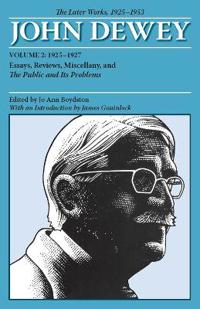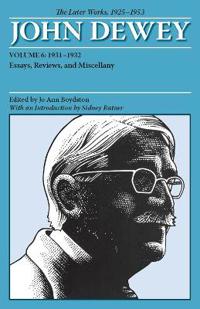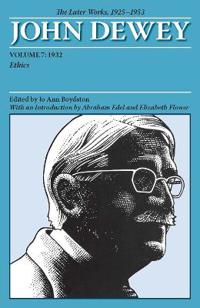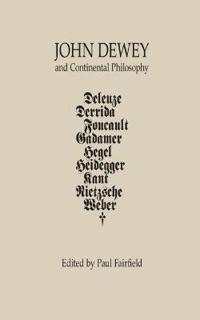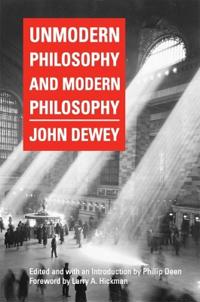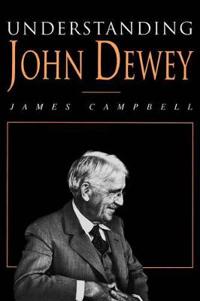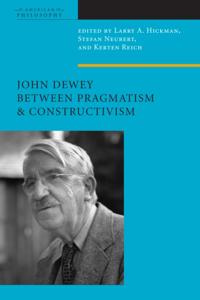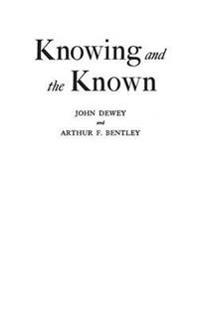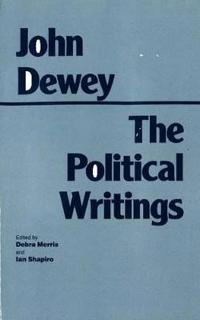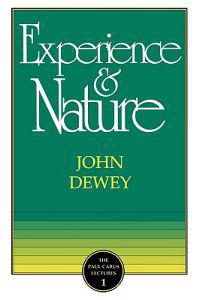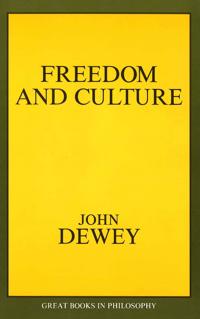John Dewey the Later Works, 1925-1953
ISBN: 9780809328116 - UTGIVEN: 2008-05John Dewey s "Experience and Nature "has been considered the fullest expression of his mature philosophy since its eagerly awaited publication in 1925.Irwin Edman wrote at that time that with monumental care, detail and completeness, Professor Dewey has in this volume revealed the metaphysical heart[...]
John Dewey The Later Works, 1925-1953
ISBN: 9780809328123 - UTGIVEN: 2008-04This volume includes all Dewey's writings for 1938 except for Logic: The Theory of Inquiry (Volume 12 of The Later Works), as well as his 1939 Freedom and Culture, Theory of Valuation, and two items from Intelligence in the Modern World. Freedom and Culture presents, as Steven M. Cahn points out, th[...]
John Dewey The Later Works 1925-1953
ISBN: 9780809328130 - UTGIVEN: 2008-04This volume includes all Dewey's writings for 1938 except for Logic: The Theory of Inquiry (Volume 12 of The Later Works), as well as his 1939 Freedom and Culture, Theory of Valuation, and two items from Intelligence in the Modern World. Freedom and Culture presents, as Steven M. Cahn points out, th[...]
John Dewey The Later Works, 1925-1953
ISBN: 9780809328154 - UTGIVEN: 2008-04This volume includes all Dewey's writings for 1938 except for Logic: The Theory of Inquiry (Volume 12 of The Later Works), as well as his 1939 Freedom and Culture, Theory of Valuation, and two items from Intelligence in the Modern World. Freedom and Culture presents, as Steven M. Cahn points out, th[...]
The Later Works of John Dewey, 1925 - 1953
ISBN: 9780809328161 - UTGIVEN: 2008-04Except for Dewey s and James H. Tufts 1932 "Ethics "(Volume 7 of The Later Works), this volume brings together Dewey s writings for 1931 1932.The Great Depression presented John Dewey and the American people with a series of economic, political, and social crises in 1931 and 1932 that are reflected [...]
John Dewey The Later Works, 1925 - 1953
ISBN: 9780809328178 - UTGIVEN: 2008-04This volume includes all Dewey's writings for 1938 except for Logic: The Theory of Inquiry (Volume 12 of The Later Works), as well as his 1939 Freedom and Culture, Theory of Valuation, and two items from Intelligence in the Modern World. Freedom and Culture presents, as Steven M. Cahn points out, th[...]
John Dewey The Later Works, 1925 - 1953
ISBN: 9780809328185 - UTGIVEN: 2008-04This volume includes all Dewey's writings for 1938 except for Logic: The Theory of Inquiry (Volume 12 of The Later Works), as well as his 1939 Freedom and Culture, Theory of Valuation, and two items from Intelligence in the Modern World. Freedom and Culture presents, as Steven M. Cahn points out, th[...]
John Dewey The Later Works, 1925-1953 (Pocket)
avJo Ann (EDT) Boydston, Harriet Furst (EDT) Simon, Abraham (INT) Kaplan
ISBN: 9780809328208 - UTGIVEN: 2008-04John Dewey
ISBN: 9780809328215 - UTGIVEN: 2008-04This volume includes ninety-two items from 1935, 1936, and 1937, including Dewey's 1935 Page-Barbour Lectures at the University of Virginia, published as Liberalism and Social Action. In essay after essay Dewey analyzed, criticized, and reevaluated liberalism. When his controversial Liberalism and S[...]
John Dewey The Later Works, 1925 - 1953
ISBN: 9780809328246 - UTGIVEN: 2008-04This volume includes all Dewey's writings for 1938 except for Logic: The Theory of Inquiry (Volume 12 of The Later Works), as well as his 1939 Freedom and Culture, Theory of Valuation, and two items from Intelligence in the Modern World. Freedom and Culture presents, as Steven M. Cahn points out, th[...]
Unmodern Philosophy and Modern Philosophy (Inbunden)
avJohn Dewey, Phillip (EDT) Deen, Larry A. (FRW) Hickman
ISBN: 9780809330799 - UTGIVEN: 2012-05In 1947 America's premier philosopher, educator, and public intellectual John Dewey purportedly lost his last manuscript on modern philosophy in the back of a taxicab. Now, sixty-five years later, Dewey's fresh and unpretentious take on the history and theory of knowledge is finally available. Edito[...]
John Dewey and Continental Philosophy (Pocket)
avPaul (EDT) Fairfield
ISBN: 9780809333042 - UTGIVEN: 2013-11John Dewey and Continental Philosophy provides a rich sampling of exchanges that could have taken place long ago between the traditions of American pragmatism and continental philosophy had the lines of communication been more open between Dewey and his European contemporaries. Since they were not, [...]
Understanding John Dewey
ISBN: 9780812692853 - UTGIVEN: 1995-03John Dewey was one of America's most celebrated and influential social thinkers. This text places Dewey in the context of American social and intellectual history, and then examines his general philosophical perspective, before giving an account of his social vision.[...]
Pragmatism as Post-Postmodernism: Lessons from John Dewey (Pocket)
avHickman, Larry A.
ISBN: 9780823228423Larry A. Hickman presents John Dewey as very much at home in the busy mix of contemporary philosophy-as a thinker whose work now, more than fifty years after his death, still furnishes fresh insights into cutting-edge philosophical debates. Hickman argues that it is precisely the rich, pluralistic m[...]
John Dewey Between Pragmatism and Constructivism
ISBN: 9780823230204 - UTGIVEN: 2009-03Many contemporary constructivists are particularly attuned to Dewey's penetrating criticism of traditional epistemology, which offers rich alternatives for understanding processes of learning and education, knowledge and truth, and experience and culture. This book, the result of cooperation between[...]
John Dewey Between Pragmatism and Constructivism (Häftad)
ISBN: 9780823251827 - UTGIVEN: 2013-05Many contemporary constructivists are particularly attuned to Dewey's penetrating criticism of traditional epistemology, which offers rich alternatives for understanding processes of learning and education, knowledge and truth, and experience and culture. This book, the result of cooperation between[...]
The Political Writings (Pocket)
avJohn Dewey, Debra Morris, Ian Shapiro
ISBN: 9780872201903 - UTGIVEN: 199310This welcome anthology presents for the first time in one volume John Dewey's major political writings. Ranging throughout his career, the selections display Dewey's philosophical method, his controversial views on war and education, his essential contributions to democratic theory, and his distinct[...]
Experience and Nature (Pocket)
avJohn Dewey
ISBN: 9780875480978 - UTGIVEN: 1982-06In this series of lectures, one of the great works of his maturity, Dewey presents the metaphysics underlying his influential views on science, ethics, education, and social reform.[...]
Freedom and Culture (Häftad)
avJohn Dewey
ISBN: 9780879755607 - UTGIVEN: 198912The twentieth century has witnessed the blossoming of Western culture: new technology; communications and transportation systems; social, political, educational, agricultural, and medical advances. But with these changes have come the strains and tensions of conflicting interests, desires, and value[...]



